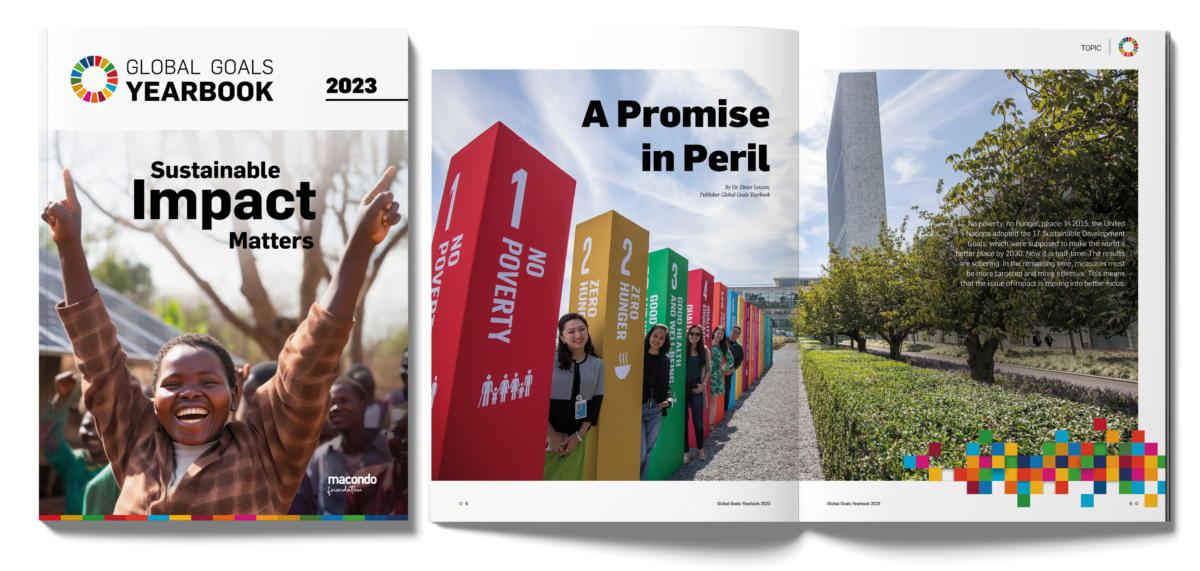Global Goals Yearbook 2023 makes SDG impact measurable

With the rising frequency of major environmental events and social movements – from floods to wildfires, and #MeToo to Black Lives Matter – the objective of making the world a better place has gone from personal choice to global necessity. The 2021 UN Intergovernmental Panel on Climate Change report issuing a “code red for humanity” represented another urgent wake-up call.
According to Force for Good’s annual report, the total cost of achieving the SDGs has increased by up to 25 percent in the last year alone, from $116–142tn to $134–176tn. This has been driven by systemic underfunding, high inflation, increasingly urgent requirements for hitting net zero, and an ever-shortening window in which to get all of this done.
Although investors have become increasingly aware of the role their capital should play in addressing environmental and social concerns, the challenge has been to combine the twin goals of “doing good” and “earning a return” in a single investment.
Impact projects offer an answer by providing a credible and scalable pathway to balancing a targeted, measurable, and beneficial environmental or social impact on the one hand, with a financial return on the other. Dr. Elmer Lenzen, chair of the macondo foundation: „Impact relates to both the focus on solutions and the opportunities created. Many „handprint„ opportunities that are intended to contribute to sustainability objectives, revolve around new technologies and services that seek to shift the mechanics of our daily lives fundamentally.„
Consensus has also emerged that impact projects should contribute to at least one, and preferably several, of the 17 UN SDGs. The involvement of the private sector is critical in helping to achieve these goals, not least because of the increasing shortfall in investment capital needed to finance the SDGs.
Raising the bar on transparency and reporting can help the industry deliver on its promise and insulate itself from accusations of “impact washing,” whereby funds make claims that are not substantiated by any relevant or demonstrable positive impact. In addition, monitoring the progress of investments in achieving impact against expectations helps improve decision-making and delivery.
The importance of impact is not only growing on the financial markets, but also in many practical projects with NGOs, politics and companies involved. What is missing, however, are binding indicators that ensure a holistic assessment of corporate performance. As long as these indicators are lacking, comparability becomes difficult.
The new Global Goals Yearbook 2023 closes this gap: Sustainability projects are linked to the specific SDG sub-goals and concrete indicators are used to measure success. The Global Goals become performant and the answer to one of the most important practical questions comes closer: How much perfection is needed and when is ‘good’ good enough?”
